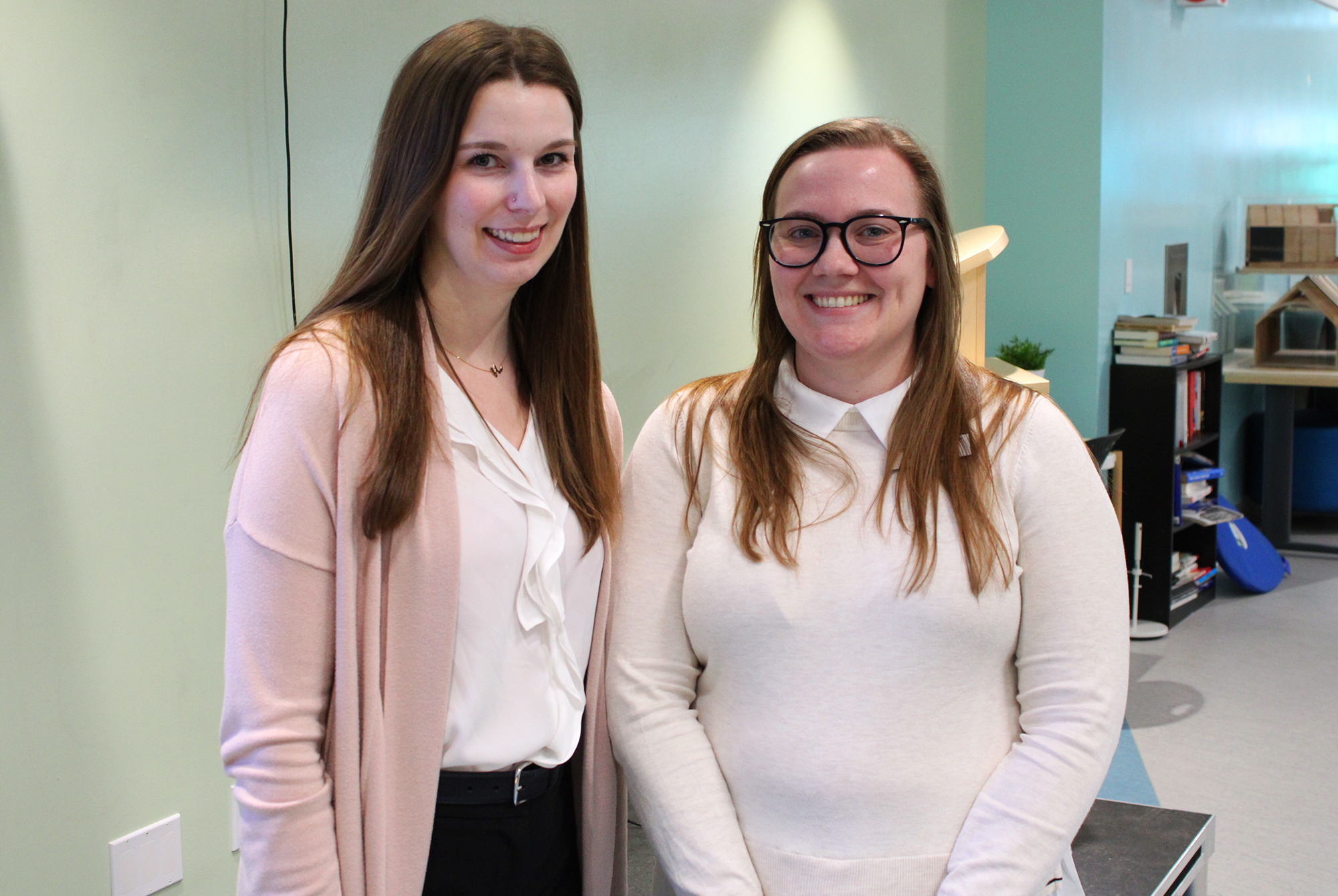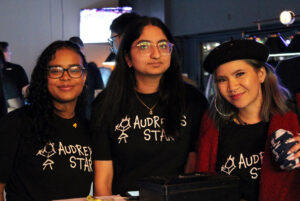Algonquin College students win Ontario’s Got Talent competition

After a six-hour car ride down to Conestoga College in Kitchener, Ont. from Ottawa, Gracie Lister and Sammy Alcius were set to perform for the provincial talent show consisting of numerous colleges across Ontario.
Once they checked into the hotel room the Students’ Association had booked for them, however, Alcius knew he had to do something with his pre-performance jitters. His solution? To jump up and down on his hotel bed before getting changed. After all, both Lister and Alcius were only given five minutes to check into their complimentary hotel rooms, change and get to the venue where they were set to perform.
“The stage was smaller at Conestoga than Algonquin College, but there were so many performers there,” said Lister, revisiting the events of the competition on March 8.
In a room full of the best college performers, Lister and Alcius performed a hip-hop dance routine, similar to that performed at Algonquin’s Got Talent, exactly a month before in February.
Performing under the name SyncLA – an acronym combining the term “in-sync” and the initials of both performers’ last names – Lister and Alcius won the competition.
“I remember when the announcer called us, it was unclear and Sam was like: ‘Is that us?'” said Lister.
“When our names were called I remember the feeling,” said Alcius. “In terms of winning, I was like, ‘holy cow, really?'”
When the announcer had clarified their names, Lister recalled jumping into the air, while Alcius’ jaw hung open for a few moments before the two were called onto stage.
With this success under their belts, Alcius and Lister are now the best college talent in Ontario.
Event coordinator of Algonquin’s Got Talent and events programmer Amanda Logan escorted them to and from Conestoga College.
“Watching them perform was really special. I felt so proud,” Logan said.
But how did they get here?
Alcius and Lister met at Algonquin College, both of them having previous dance experience before forming SyncLA.
Lister is an Ottawa native with 13 years of competitive dance under her belt.
“I started off doing gymnastics, taekwondo, and soccer,” said Lister. “One of my family friends had a daughter in competitive dance and on the way to my gymnastics practice, we had met up at a Tim Hortons.”
It was there that Lister and her mom learned about a competitive dance studio down the road from the gymnastics gym they went to. Lister recalled the family friend talking about his daughter’s dance audition, encouraging them to check out the studio.
“I walked into the studio and there were lots of kids running around. I think it was an open house,” she said. “The space felt like home. I did cartwheels and all my other gymnastics moves and my mom asked if I was interested. I just said ‘Heck yeah!'”
Lister recalls doing many performances with her community. She mentioned productions she had been part of, such as Footloose. She mentioned her most common performances were those for charity, for an event called WE Day.
“My parents said I was a little powerhouse on stage,” she said. “My teachers did too.”
Alcius’ story isn’t quite so direct. His dancing journey started from the comfort of his home.
“I would watch dance movies like Stomp, Step Up,” he said. “I would pause and rewind, and slow it down so I could see what they were doing. I picked up moves that way.”
Alcius quickly turned to YouTube to expand his expertise, following dance tutorials for both individual moves and routines.
His first performance was at a fourth-grade talent show. Alcius recalled being too shy to perform, so he decided to perform in costume. The reception to his performance was what pushed him to keep going.
“I had a teacher buy me a mask so I could perform. I had a Jabberwocky mask and a bedazzled vest,” said Alcius. “I took off my mask [at the end of my performance] and was met with a roar of cheers.”
Alcius is originally from Florida and credits some of his dance talent to his church upbringing.
Ontario’s Got Talent is as far as Alcius and Lister can progress in the “Got Talent” talent show series.
However, the two have plans for expanding their careers outwards and upwards.
“I just want to see them thrive and make money off of their talent,” said Logan.
Lister has plans to attend George Brown College in Toronto for dance. She will permanently relocate to Toronto next year to expand her dance career.
Alcius is going into the radio broadcasting and podcasting program at Algonquin College. Alcius’ personal passion lies in social media, and his decision to pursue the program is based on that.
“I want to talk in front of a camera, for my audience to know me besides my dance moves,” he said.
The two have plans on auditioning for the 2025 season of Canada’s Got Talent. They expressed difficulty with planning routines together because of Lister’s relocation plans. However, under the name SyncLA, they are still set to plan a routine for Canada’s Got Talent.
“I have no doubt Sam and I will go far,” said Lister. “Whether it’s together, separate, or a little bit of both. I know we’ll definitely do something and be successful.”


















